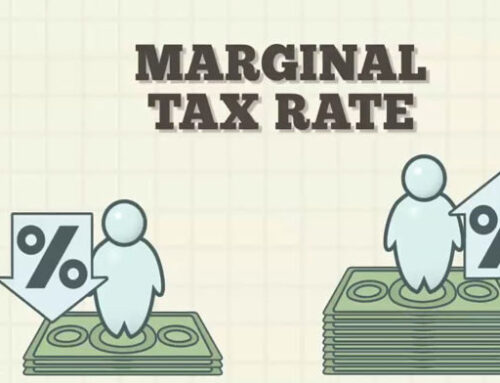Dealing with the loss of a loved one is a challenging and emotional time, and amidst all the considerations, it’s important to remember that a final tax return needs to be completed. To ensure that all affairs are in order, here are some key considerations to keep in mind when preparing the final tax return for a loved one.

Understanding Income Reporting Tax Return for a Loved One
When preparing the final tax return for a deceased individual, it’s important to accurately report all income earned from January 1st until the date of their death. This income is referred to as the “final” or “terminal” income. It’s worth noting that certain types of income, such as interest, rent, royalties, annuities, or salary and wages, are considered to accrue in equal daily amounts during the period they were payable, even if they weren’t received at the time of death.
For example, if the deceased person received a monthly salary of $4,000, typically paid on the 1st of each month, but passed away on the 23rd day of the month, their income for those 23 days (assuming a 31-day month) would be calculated as $2,968. Although the employer may issue a T4 slip showing the total annual amount paid, it’s your responsibility to calculate and determine the portion of income that should be reported on the final tax return.
Accounting for Property and Exclusions in the Final Tax Return
When preparing the final tax return for a deceased individual, it is essential to account for their property and understand what should and should not be included in the return.
Property such as real estate, shares, mutual funds, or securities owned by the deceased at the time of their death must be reported on the final return. This allows the government to determine the capital gain since the property was initially acquired. For instance, if a house was purchased for $200,000 and is now valued at $700,000, the capital gain would be $500,000.
However, the “deemed disposition rule” offers some relief for common law partners or surviving spouses. It allows the property to be transferred to the spouse/partner at cost, deferring the capital gain payment until their eventual death. Additionally, if the property can be designated as the deceased person’s principal residence for all the years they owned it, the capital gain on the real estate may be exempt.
Also Read: Are Gifts To Customers And Business Associates Deductible Expenses?
Registered Retirement Savings Plans (RRSPs) and Registered Retirement Income Funds (RRIFs) held by the deceased person can be transferred to the surviving spouse/partner’s plan for Tax Return for a Loved One. In the case of financially dependent children or grandchildren, the funds can also be transferred, but only into an annuity with a term date no later than the child’s 18th birthday, unless the child is infirm. If there is no eligible recipient, the issuer is required to report the full market value of the fund at the time of death, which is then included in the deceased’s income.
However, certain items should not be included in the final return. For example, the Canada Pension Plan (CPP) or Quebec Pension Plan (QPP) death benefit, which is typically $2,500, should be reported on the estate return rather than the final return. If the estate has no other income and does not require a T3 return, the CRA allows this benefit to be reported directly on the beneficiary’s return as a special administrative concession.
Executors should also check for any unapplied net capital losses from prior years. Reporting these losses can help reduce the income inclusion resulting from the deemed disposition of capital property. If the deceased did not have any capital gains in the year they died, a special rule allows the executor to deduct unapplied net capital losses against other income, either on the final return or the return of the immediately preceding year, with authorization from the CRA.
Remaining vigilant and understanding these considerations will ensure that the final tax return for a loved one accurately reflects the deceased person’s financial affairs.

Managing Donations and Medical Expenses in the Final Tax Return
When completing the final Tax Return for a Loved One for a deceased individual, it’s important to consider other financial transactions that may have occurred, including charitable donations and medical expenses.
If the deceased person had specified charitable donations in their will, these donations qualify for the charitable donations tax credit, just as if they had been made while the person was alive. The executor has flexibility in claiming these donations. They can choose to claim them on the final return, the Tax Return for a Loved One of the preceding year, or the estate of Tax Return for a Loved One for the year the distribution was made to the charity, or any other taxation year of the estate for up to five years.
This flexibility allows for optimal utilization of the charitable donations tax credit. Claiming donations on the return of the year prior to death can be particularly advantageous if the deceased passed away early in the year and did not have sufficient income on the final return to fully utilize the credit for Tax Return for a Loved One.
Also read: First-Time Student Tax Filing: 4 Helpful Tips
When it comes to medical expenses, the usual rule is that you can only claim expenses paid within a 12-month period ending in the taxation year. However, in the year of death, medical expenses can be claimed for any 24-month period that includes the date of death. This extended period is beneficial, especially in situations where the deceased passed away late in the year, and some medical expenses were paid in the following year. It’s important to note that funeral expenses are not considered medical expenses and cannot be claimed as such.
By understanding and taking advantage of these provisions, executors can effectively manage charitable donations and medical expenses when preparing the final Tax Return for a Loved One, ensuring that the deceased person’s wishes are fulfilled while maximizing tax benefits.
Losing a loved one is a difficult and emotional experience. Amidst the grieving process, there are practical matters to attend to, including the finalization of their financial affairs, which includes filing their last Tax Return for a Loved One. In this guide, we’ll walk you through the essential steps and considerations when filing the final tax return for a loved one.
1. Determine the Deceased’s Filing Status
The first step is to determine the deceased’s filing status for the Tax Return for a Loved One for a year. This status is typically based on whether the person was single, married, or a head of household at the time of their passing. The chosen status will affect the tax return and any available deductions or credits.
2. Gather Necessary Documents
To file the final tax return, you’ll need to collect important financial documents related to the deceased, including:
- W-2 forms for income earned in the year of their passing.
- Any 1099 forms for additional income, such as interest, dividends, or retirement account distributions.
- Records of deductible expenses, such as medical bills or business-related expenses.
- Information about any tax withholdings or payments made throughout the year.
- Previous years’ tax returns for reference.
3. Appoint an Executor or Administrator
The executor or administrator of the deceased’s estate is responsible for handling their financial affairs, including filing their final Tax Return for a Loved One. If there is no will or designated executor, the court may appoint an administrator. This person is responsible for ensuring that all financial matters are resolved according to the law.

4. Obtain a Tax ID Number
The deceased’s Social Security Number (SSN) should not be used on the final tax return. Instead, you’ll need to obtain an Employer Identification Number (EIN) for the estate. You can apply for an EIN online through the IRS website or by filing Form SS-4.
5. Complete the Final Tax Return
Using the gathered financial documents and the EIN for the estate, complete the final tax return. This return is filed on Form 1040 (U.S.) or the equivalent form in your country. If the deceased was married, you may need to file a joint return if the spouse is still alive.
6. Report All Income and Deductions
Ensure that all sources of income and deductions are accurately reported on the final tax return. This includes any income earned from the date of death until the end of the Tax Return for a Loved One for a year. Deductions for funeral expenses and outstanding debts may also apply.
7. Pay Any Outstanding Taxes
If the final tax return shows that taxes are owed, the estate is responsible for paying these debts. Be sure to follow the payment instructions provided by the tax authorities to avoid penalties or interest charges.
8. File State and Local Returns
In addition to the federal tax return, you may need to file state and local tax returns, depending on your location. Each state has its own rules and forms for filing a deceased person’s final Tax Return for a Loved One.
9. Keep Detailed Records
Maintain thorough records of all transactions related to the deceased’s estate and the final tax return. This documentation may be needed to resolve any questions or disputes with tax authorities.
10. Seek Professional Assistance
Filing the final tax return for a loved one can be a complex process, especially if there are multiple income sources or intricate financial arrangements. Consider seeking the assistance of a tax professional or estate attorney to ensure that all legal and tax requirements are met accurately and efficiently.
Conclusion
Filing the final tax return for a loved one is a necessary but emotionally challenging task. By following these essential steps and seeking professional guidance when needed, you can ensure that your loved one’s financial affairs are settled appropriately and in compliance with the law. This allows you to focus on the grieving process and cherish the memories of your departed family member or friend.
Recent Posts
FAQ
What should be considered regarding charitable donations and medical expenses in the final tax return for a deceased individual?
When completing the final tax return for a deceased individual, it is important to consider charitable donations and medical expenses.



